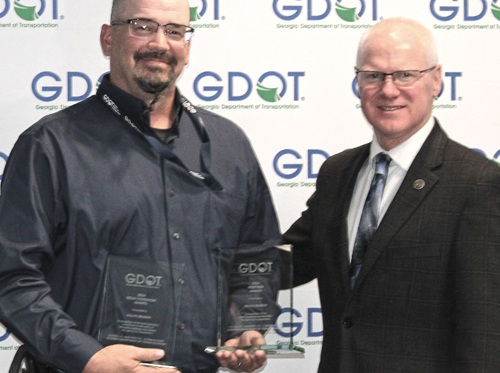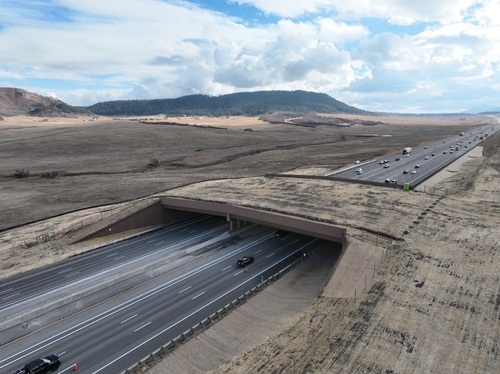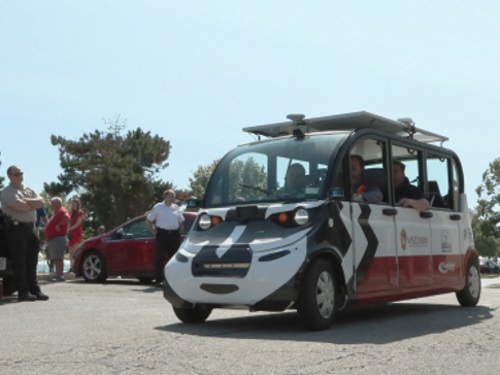The Wisconsin Department of Transportation recently conducted a training session for law enforcement officers and first responders regarding Connected and Automated Vehicles or CAVs on the campus of Gateway Technical College.
[Above photo by the Wisconsin DOT]
The agency presented the training session in partnership with the city of Racine, Gateway Technical College, and the University of Wisconsin-Madison.
The training included a demonstration of the “Racine Badger,” the only fully automated vehicle operating on Wisconsin roads. Trainees received a demonstration and a chance to ride the Badger, which operates as a shuttle around the Gateway campus.

It is a fully automated and electric shuttle bus currently operating on a short route around the college – with a safety driver – to provide short, low speed trips in an urban setting for research and public exposure.
“We are focused on CAVs because of [their] enormous potential to reduce crashes and fatalities on Wisconsin roads,” noted Joel Nilsestuen, Wisconsin DOT deputy assistant secretary, in a statement.
“Most crashes are due to one extent or another to human error, such as inattentive or impaired driving, speeding and other reckless behavior,” he added. “By eliminating these kinds of errors, CAVs may one day dramatically reduce the number of crashes, saving many lives in the process.”
[Editor’s note: In October 2021, the American Association of State Highway and Transportation Officials published a policy paper outlining the 10 key policy principles needed for CAVs – a paper intended to be a “living document,” reviewed and updated every year to reflect changes in technology and policy.]
Along with the Badger demonstration, Wisconsin DOT said members of the state’s Traffic Incident Management training team and other law enforcement and first responder personnel learned how CAV technology works, which Wisconsin laws apply to CAVs, and how to approach them at traffic stops.
“Our training session today is a first step in ensuring that professionals throughout the state have the awareness and information they need to help Wisconsin transition to this transformative new technology,” Nilsestuen noted.
 States
States
Georgia DOT Foreman Receives Two Heroism Awards
January 2, 2026 States
States

